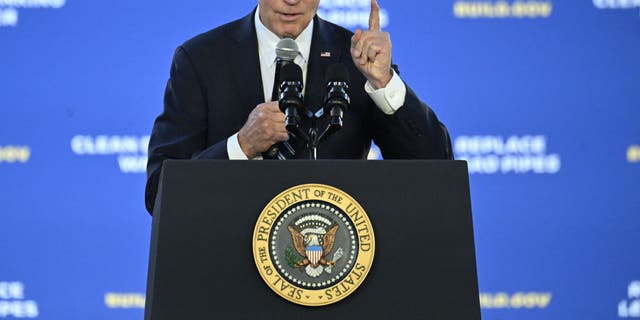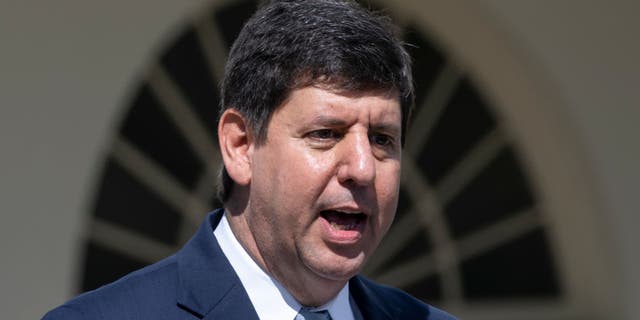
President Biden’s budget proposal for fiscal year 2024 includes a whopping $1.9 billion for the Bureau of Alcohol, Tobacco, Firearms, and Explosives (ATF), a massive increase of millions of dollars from the previous year’s budget.
The proposal comes as the ATF faces increased scrutiny over its efforts to further regulate firearms, which includes the implementation of multiple controversial rules, such as the banning of stabilizing pistol braces, a “zero-tolerance” policy for federal firearms dealers and rules cracking down on “ghost guns.”
If approved, Biden’s budget would increase funding for the ATF by roughly $200 million, or 13.6%, compared to the fiscal year 2023 budget. It would also mark a $663 million increase, or 50%, from former President Obama’s final budget in fiscal year 2017.

This 2008 file photo shows weapons seized by the Bureau of Alcohol, Tobacco, Firearms and Explosives (ATF), and laid out on a table at the bureau’s Arizona headquarters in Phoenix. (Reuters)
According to the White House, the additional funding would go towards further regulating the firearms industry, including implementing the Bipartisan Safer Communities Act, creating gun trafficking strike forces and enforcing background checks.
NO, BIDEN’S BUDGET IS NOT LIKE ‘WACKO’ REAGAN’S

President Biden speaks about the progress of the administration’s economic agenda at Belmont Water Treatment Center in Philadelphia, Pennsylvania, on February 3, 2023. (ANDREW CABALLERO-REYNOLDS/AFP via Getty Images)
Republican lawmakers have taken steps to combat the ATF’s rules, including introducing legislation that would expand the rights of gun owners across the country, such as protecting the gun rights of full-time travelers.
Some lawmakers have also demanded ATF Director Steven Dettelbach testify before the House Judiciary Committee over the agency’s efforts to implement its new rules.
ECONOMIST WARNS BIDEN’S BUDGET PROPOSAL IS A ‘FISCAL ATROCITY’: THE ‘WORST BUDGET I’VE SEEN’
“The ATF’s lack of transparency comes after the agency issued a final rule banning stabilizing pistol braces, and as the agency continues to shut down lawful businesses through the ‘zero-tolerance’ policy for federal firearms dealers (FFLs),” the Reps. Jim Jordan, R-Ohio, and Thomas Massie, R-Ky., wrote in a letter to Dettelbach earlier this month.

President Biden’s then-nominee to lead the Bureau of Alcohol, Tobacco, Firearms and Explosives (ATF) Steve Dettelbach speaks during an event about gun violence in the Rose Garden of the White House April 11, 2022, in Washington, DC. (Drew Angerer/Getty Images)
CLICK HERE TO GET THE FOX NEWS APP
Beyond the ATF funding, Biden’s $6.9 trillion budget proposal has received sharp criticism from Republicans in Congress with some referring to it as “funky voodoo accounting.”









